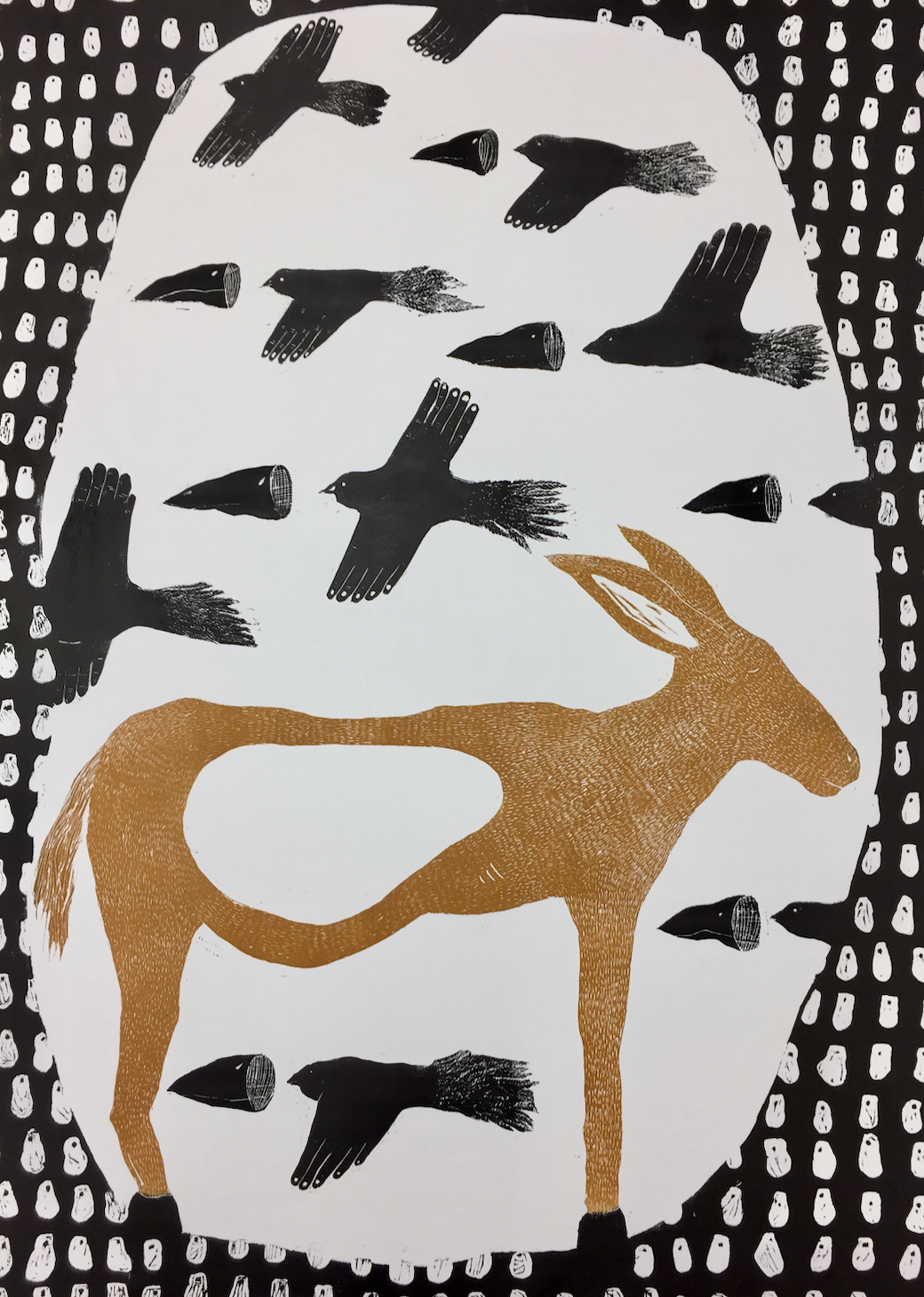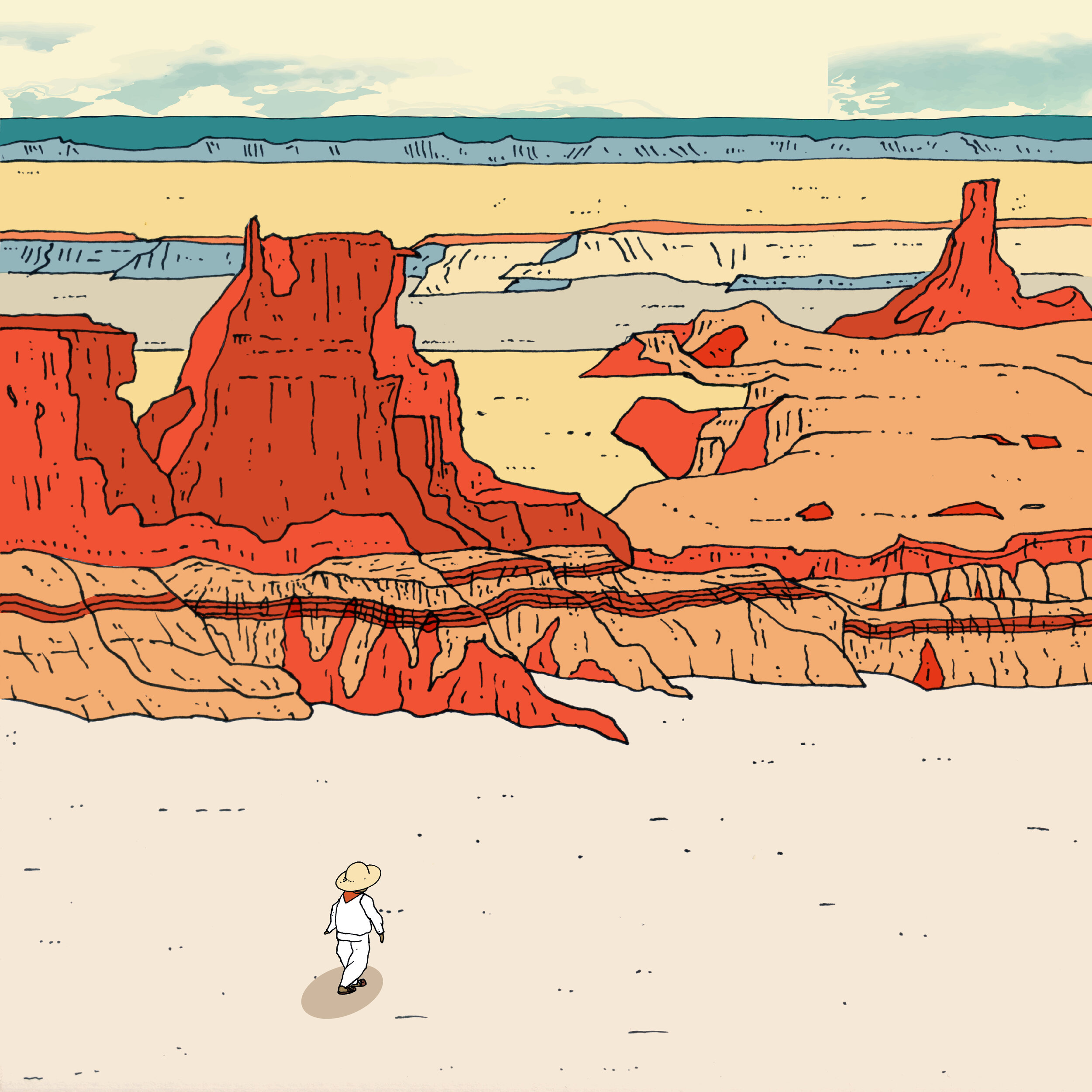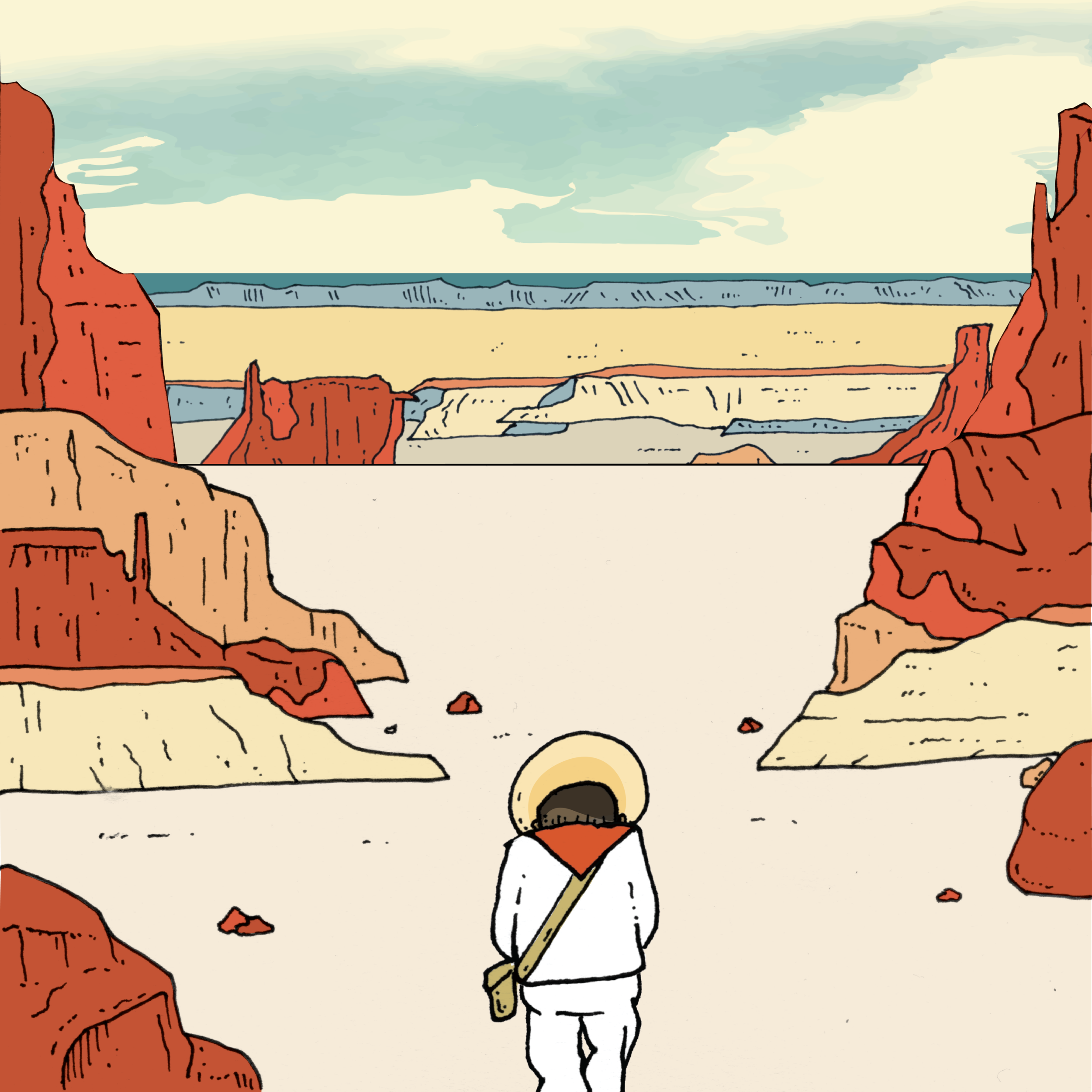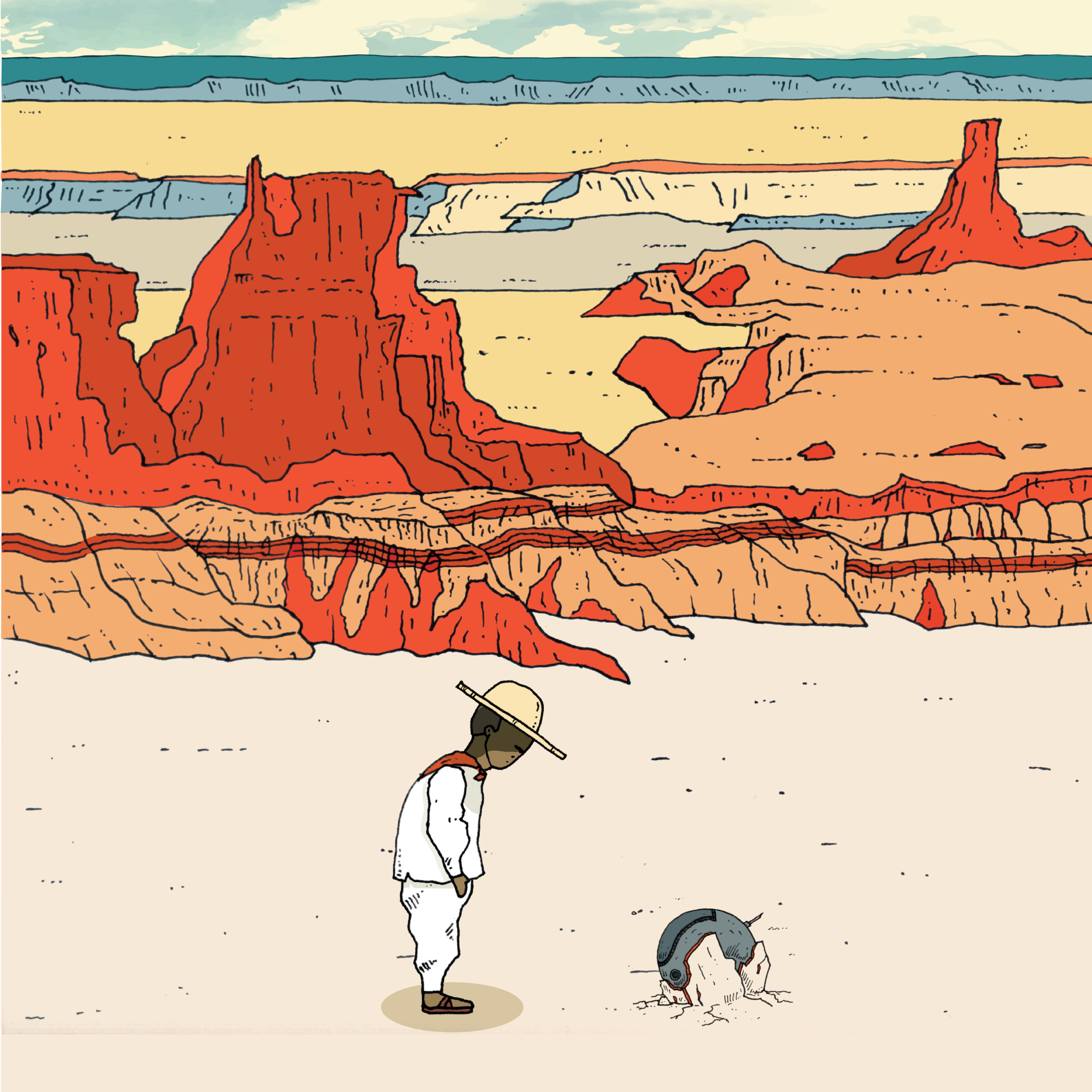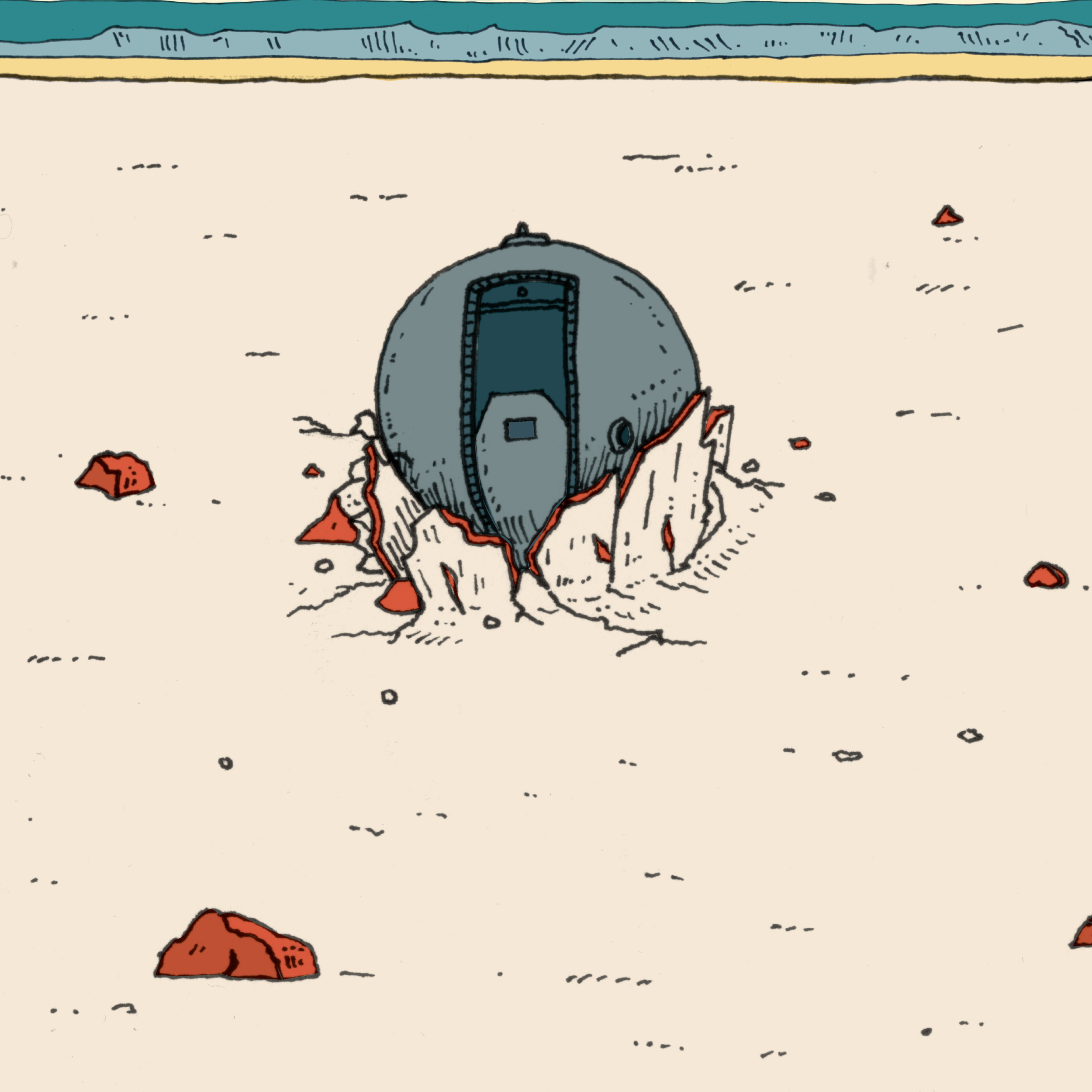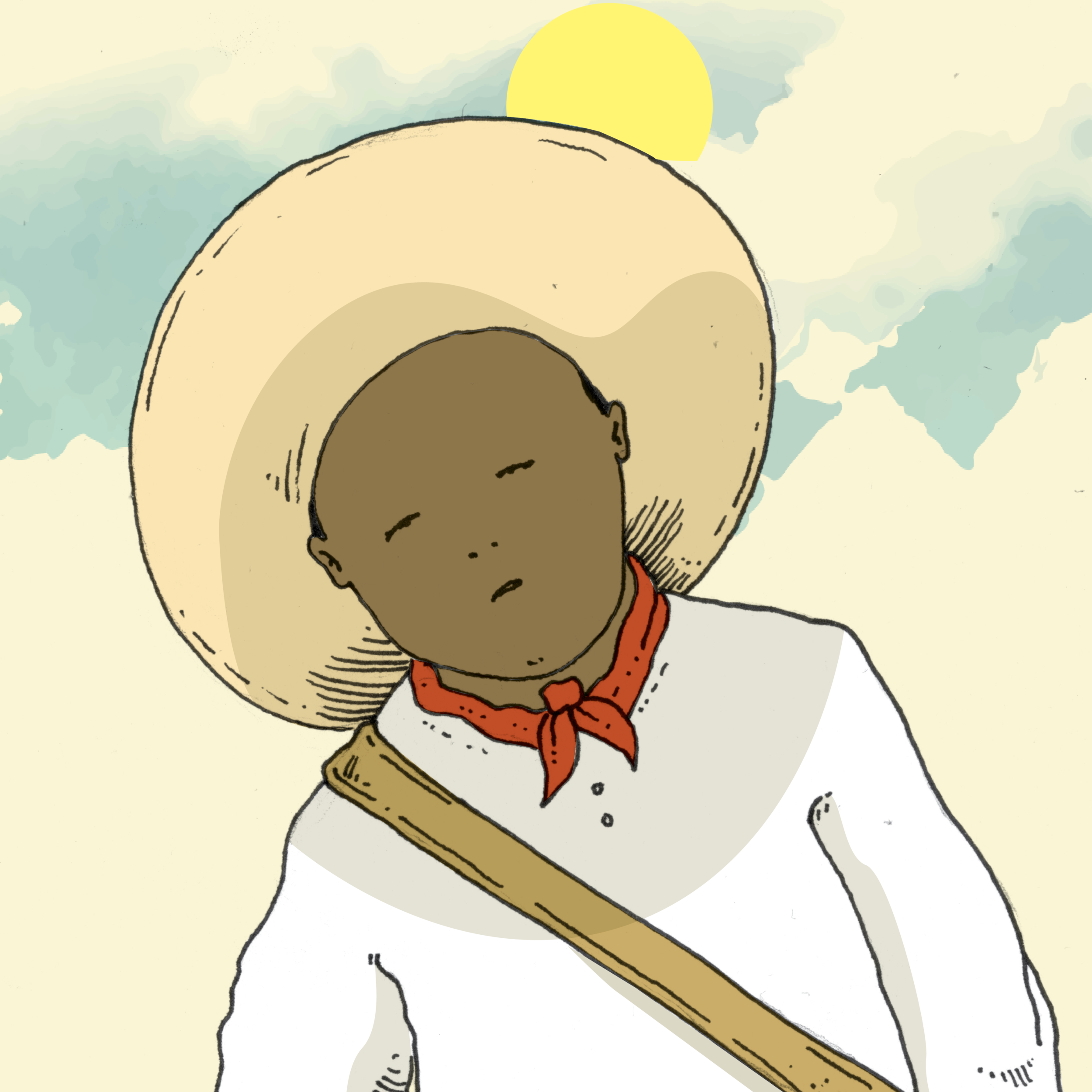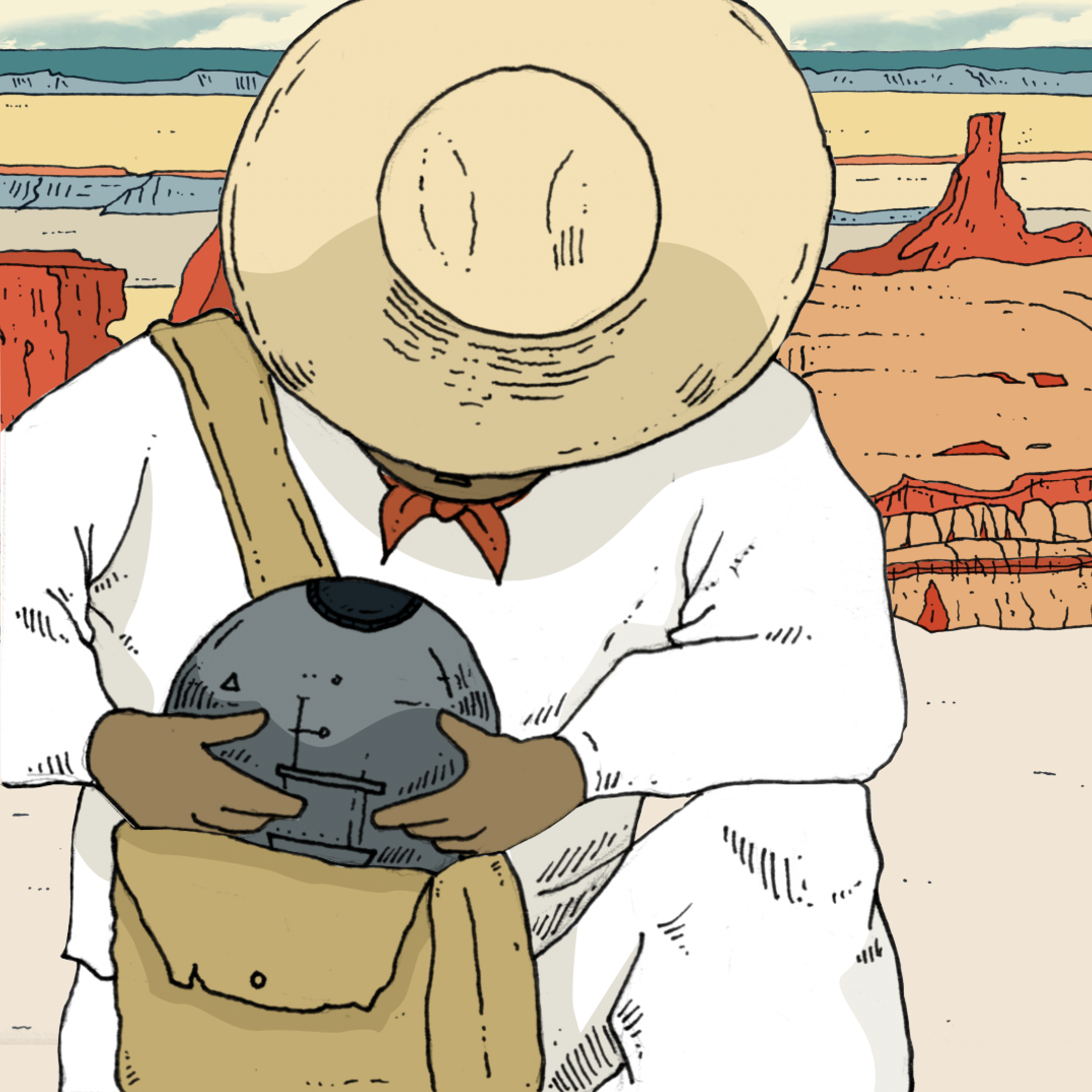CutBank 93
2020
Contents
1/8: I Am Afraid
Cover Artist’s Statement by Stella Nall [Read an excerpt…]
Childe Roland and I to the Library Came
Nonfiction by Kristine Langley Mahler [Read an excerpt…]
What Happens
Nonfiction by Ona Gritz [Read an excerpt…]
I Ask My Sister’s Ghost How Her Days Are Now
Poetry by Benjamin Gucciardi
Toward a state of undress
Poetry by Hallie Beard
In the Lake, Before Dark
Nonfiction by J.A. Bernstein [Read an excerpt…]
The Hidden People
Winner: Montana Prize in Fiction, by K.C. Mead-Brewer [Read the story…]
Untitled Digital Self-Portrait; First Descendant: Sterile Hybridity (with Artist’s Statement); Two Heads are Better Than One; Safe (Abundance)
Visual Art by Stella Nall
Number 19; Artist’s Statement; Anam
Visual Art by Enrique Barrios [Read an excerpt…]
Kin—
Winner: Patricia Goedicke Prize in Poetry, by Kathleen Madrid
Welcome to the Hotel Sabra
Winner: Montana Prize in Nonfiction, by Robert Rebein [Read an excerpt…]
Half Light and Waivers and Maps
Poetry by Fatima Espiritu
Johnny, Be Good
Fiction by Maureen Traverse [Read an excerpt…]
It Is Relentless, This Way Crossroads Keep on Forming
Poetry by Hair Alluri
Mountains I’ll Never Reach
Nonfiction by Gregory Ariail [Read an excerpt…]
the mirage of being
Poetry by Haydil Henriquez
|
Editor-in-Chief Online Managing Editor Fiction Editors Poetry Editors Nonfiction Editors Social Media Coordinator Visual Arts Editor Publication Intern
Cover
|
|---|
Kristine Langley Mahler│Nonfiction
Childe Roland and I to the Library Came
She doesn’t even look up at him as this huge pile of books is dropped with what must have been a thud, must have reverberated. The librarian’s mind is elsewhere. It’s not until Roland confesses I wanted to be with you alone and talk about the weather that she makes eye contact, like she can’t believe he’s coming at her with this nerdy line—who wants to talk about the weather, that trope of nothing-conversation? But it’s that precise clause that moves me, silences me: the past tense is already present in the first phrase of the song. He want-ed because now, he has.
-X-
There was a boy who used to mumble at me in algebra II, tossing spit wads at my neck, poking at my elbow until I’d turn around and then he’d look away, or look back blankly at me, What? I began a series of unvoiced communicative acts: arranging my body in positions of feigned disaffect, languorously tilting my head while pretending to ignore him—that’s how I sought to retain his interest, convinced that any attention was proof I could be desirable. After months of half-hearted harassment, he finally said my actual name, leaning against his locker, no one else in the hall but his friend. I walked up and said, like a challenge, “Is there something you wanted?” but he averted his eyes; he had become something I wanted.
Ona Gritz│Nonfiction
What Happens
“I don’t think about it much,” I confess a year later in the small, spare office of the campus therapist.
Her face stays impassive despite what I’ve just said. Months earlier, my pregnant sister Andra, her husband, and my eleven-month-old nephew were murdered, but that fact rarely crosses my mind.
“I took it harder when John Lennon was killed,” I tell the therapist so she’ll understand the gaping hole I have in place of a heart.
“That’s what celebrities are for,” she says and lets me change the subject.
J. A. Bernstein│Nonfiction
In the Lake, Before Dark
The morning after the graduation ceremony, at a depot where my company meets, M. recounts how he spent his off-day, unsealing his Marlboro Reds. Apparently he travelled to Jerusalem’s Old City, “deep inside the Arab Quarter,” as he explains, to find loose tobacco. There, he reached for his wallet and accidentally grabbed the double-magazine latched to his belt. “An entire crowd of Arabs stepped back,” he explains, tapping his pack with his palm.
It’s unclear if he’s joking. A couple months back, he reportedly spent a night in a military prison for having broken into his kibbutz’s closed bar. “Wasn’t so bad,” he’d explained at the time. “Like being in the army. Except the food is worse, and you’re alone.” A child of Ukrainian Jews, he’s shorter
than the rest of us—the foreign volunteers—with oily black hair and green eyes.
“We’re gonna get the worst of it,” he says to me later, boarding the bus to Jenin. He’s also a designated marksman in the unit, having proven a reliable shot. “Gonna kill the most people,” he says, leaning back. He picks at his gums as he talks.
K.C. Mead-Brewer│Winner: Montana Prize in Fiction
The Hidden People
They’re on a private driving tour of Iceland together, Mari and Skye. Girls’ Trip. It’s March, the island’s off-season, so there’s hardly anyone else on the road. Endless gales toss fresh snow everywhere; the world looks like a nickel-scratched lotto ticket. Logi, their guide, drives a white ATV with wheels so big they have to use a stepladder to climb in and out. Today they’re exploring the Snæfellsnes peninsula. They’re going to see black and golden sand beaches. Fields of windblown horses. Puffins. They’re going to see puffins.
They’re not going to see puffins. Not in March.
“I swear to shit, Mari, if you sigh like that one more time, I’m gonna have Logi pull over and kick you out.” Skye’s threat is undermined somewhat when she leans in for another cheek-to-cheek selfie.
Photo-smile fading, Mari glances at the back of Logi’s balding head. His English is strong, but he seems to have trouble following all their backseat conversation, especially if they keep their voices low. “That wasn’t a sigh,” she says, “it was a wistful...moan.”
Robert Rebein│Winner: Montana Prize in Nonfiction
Welcome to the Hotel Sabra
When I wasn’t working on my thesis or wandering the streets in search of cheap food, I wrote long letters to my parents in Kansas, to the English girlfriend I’d left behind at Exeter, and, finally, to the woman in New York who’d offered to put me up on my way back to Kansas, should I make it that far. In these letters, I characterized the life I was living as one romantic adventure after another. My dealings with the carpet dealer alone took up three or four pages, and I lavished similar attention on the harvest moon outside my window, the groggy voice of the muezzin calling the devout to prayer, the faces of the children mobbing me in the street to beg a pencil or cigarette (Donnez-moi un stylo! Donnez-moi une cigarette!). Having finished one of these missives, I’d carry it with great urgency to the bureau de poste, where a man in a denim tunic would weigh the letters, sell me stamps bearing a likeness of President Ben Ali, then cancel each of the stamps individually with a series of loud cha-chings from his manual postage marker. What a wonderful sound that was.
It was a pleasant enough routine, but a few weeks into it, I began to have trouble with the hotel manager, a nervous, fastidious fellow with
a neatly trimmed mustache, who would watch for me to return from my errands and accost me just inside the door to the hotel.
“Monsieur, your bill is growing very large. When do you intend to pay it?”
Maureen Traverse│Fiction
Johnny, Be Good
When Johnny interviewed for his job which he needed if he was going to keep his distance from home and the tiny town where he’d gone to college, it was Devita and Ken Blazer in the room, and even before it started, while they were still having their nice-to-meet-you-did-you-find-the-place-all- right moment, he recognized the wall he was up against and set himself right, because the Ken Blazers of the world, and there were plenty, had a way of announcing themselves, the line of Ken’s haircut so sharp it might hurt you, the bit of extra weight he carried like evidence he’d had the good sense to be bigger, one of an army of fathers and T-ball coaches and youth group leaders who would set you straight with a side-eye, whose duty it was to remind you of who you were. So it was no surprise that, during Devita’s pitch about the family atmosphere at the annual picnic at Emerald Lake, Ken elbowed in to say how John should feel free to bring his girlfriend, even though Johnny had never mentioned Kayla finishing up in Cedarville. If you’re single you won’t be for long, Ken had said, lots of college girls in this town. Devita’s brow creased with an admonishing look she must have known would never chip into Ken Blazer’s solid sense of right. In that moment, Johnny figured what he needed to know. Whatever power Ken Blazer wielded, he was not well-liked, and when Devita shook his hand at the end, Johnny liked her, and figured she would like him in the ways women typically did—Johnny Dear, Dear John—because they believed he was no threat. As she walked him out, he watched his ghosted form slide over glass suite fronts, Allodial Title Corp, Manley Deas Kochalski, Inteliserv, his faint presence and gentle features, his chest the opposite of a barrel, his fingers and eyelashes long, his narrow waist and clean jaw. Johnny poses questions simply standing in a room, and questions make some people uncomfortable.
Gregory Ariail│Nonfiction
Mountains I’ll Never Reach
Maxwell Montes, a basaltic mega mountain soaring seven miles above Venus’ mean radius, is thought to be blanketed by metallic snow, fine cold rainbow particles of bismuth sulfide and pyrite. Once, on a butte in the Grand Tetons, some friends and I came upon a block of snow, resting on the slope like a sleeping elephant; within the snow were red and violet stains of algae, along with blue spruce cones leaking crystalline sap that glowed golden as the sun set. I wouldn’t have found this moment as memorable or beautiful if I hadn’t thought of that prismatic snow on Venus’s highest mountain, and forgot my friends for a moment, imagining I was on the second planet. In my mind’s eye the two landscapes wobbled and fused like two drops of water.
I’ve always enjoyed representations of mountains as arenas for punishment and purgation because, as reprehensible as these actions are, they invite a procession of weirdnesses and surreal images, as in the allegorical paintings by Hieronymus Bosch. A 12th century monk, Tnugdal, envisions sinners punished in places of uncommon dimensions: deep gorges and a high mountain. This is a common medieval trope, and demons frequently toss lost souls into fiery fissures in distorted crags in paintings by fourteenth century artists such as Giotto and Buffalmacco.
Stella Nall │Cover Artist’s Statement
1/8: I Am Afraid
1/8: I am Afraid is a self-portrait which discusses the painful and confusing feelings that I am often confronted with as a mixed-race indigenous woman. 1/8 is what is recorded as my blood quantum for Apsáalooke. It is the fraction that means that I am considered a First Descendant rather than an enrolled member of the Crow Tribe, and it is a fraction which many of our people are afraid of because it is symbolic of the final tie to any officially recognized claims to Crow identity.
The white line which cuts through the print is symbolic of my recorded blood quantum. It is fractionated into eight sections and one of them is beaded because that is the amount of my blood that is seen as Crow. The beads were gifted to me by my mother, and I depicted myself reaching through the beaded section to symbolize my efforts to maintain connection with the parts of myself and my community that feel integral to my cultural identity.
I chose to use the elk’s teeth as a symbol of Apsáalooke connection because they are historically important to our people and are important in my life. They adorn traditional regalia of Crow women and also bring me comfort because they are familiar and remind me of some of the happiest memories of my childhood: wearing the Elk’s tooth dress made for me by my mother, visiting my family and dancing at Powwows. I included the badger because I am trying to learn Apsáalooke, and it is the first animal name that I learned in the language (awachia).
A lot of my recent work deals with the blood quantum because there are a lot of misconceptions surrounding it, and I am trying to draw attention to the issue and educate people about it. As a First Descendant, I am not allowed to vote on enrollment methods or any tribal issues. I feel that the best way I can share my voice regarding these matters is through my art. I am trying to educate my tribe and anyone else who isn’t aware of it about the racist origins and the misconceptions about indigeneity that are enforced and perpetuated through the blood quantum. Many tribes across the U.S. have switched back to traditional enrollment methods, and I am hoping that someday my tribe will too.
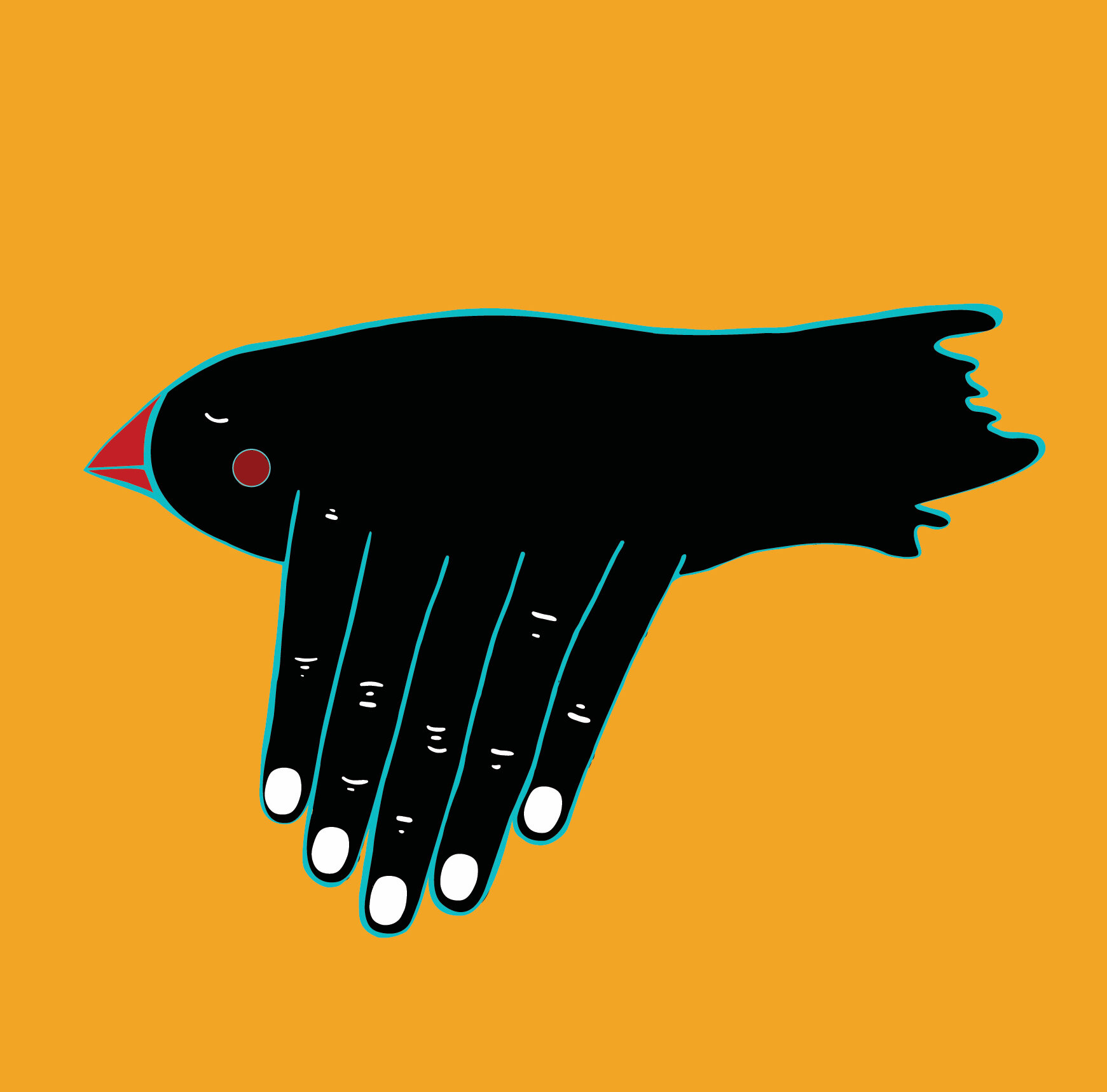
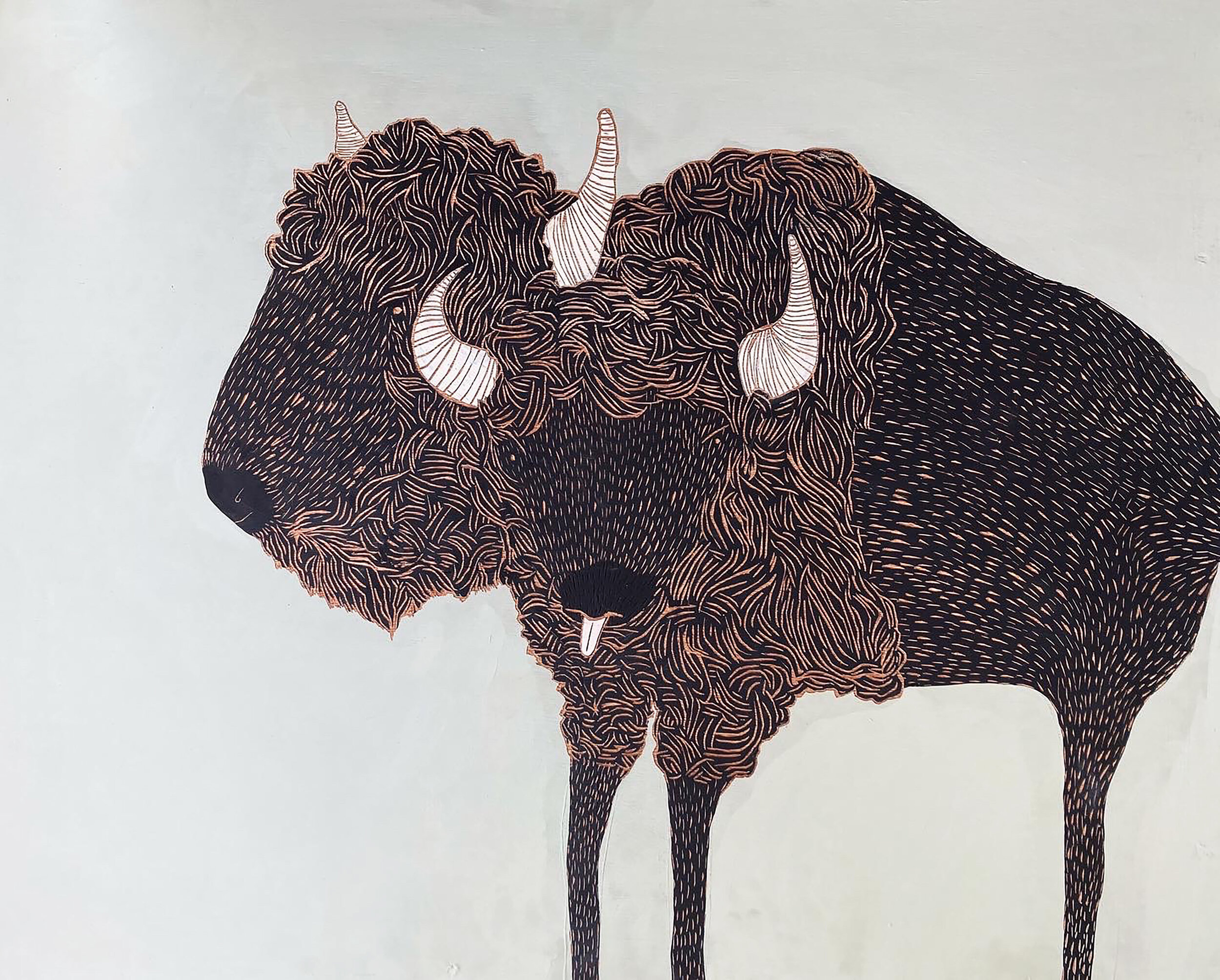
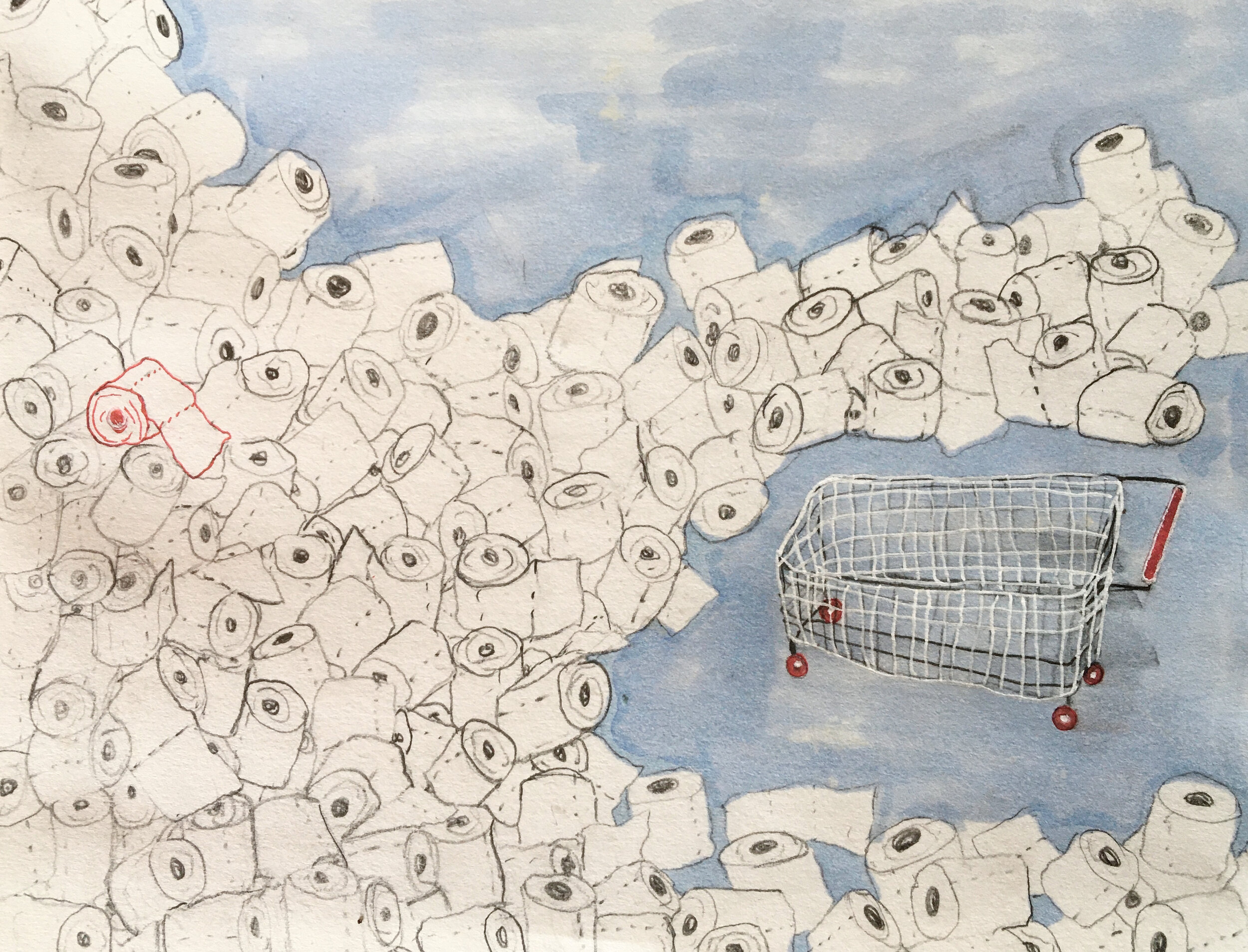
Enrique Barrios│Artist’s Statement
Number 19 & Anam
Number 19: A depiction of the inhabitants of a minimalist world observing the arrival of a strange new life form called COVID-19.
Anam is an animated short story that takes place in a dystopian future where the only living beings are indigenous people who kept their tribes in isolation for centuries during the planet’s technological rise and fall. After the destruction of most of the planet’s natural resources and the demise of its population, the few humans that remain find themselves rebuilding the Earth the way their ancestors did once before.
*
Number 19
*


